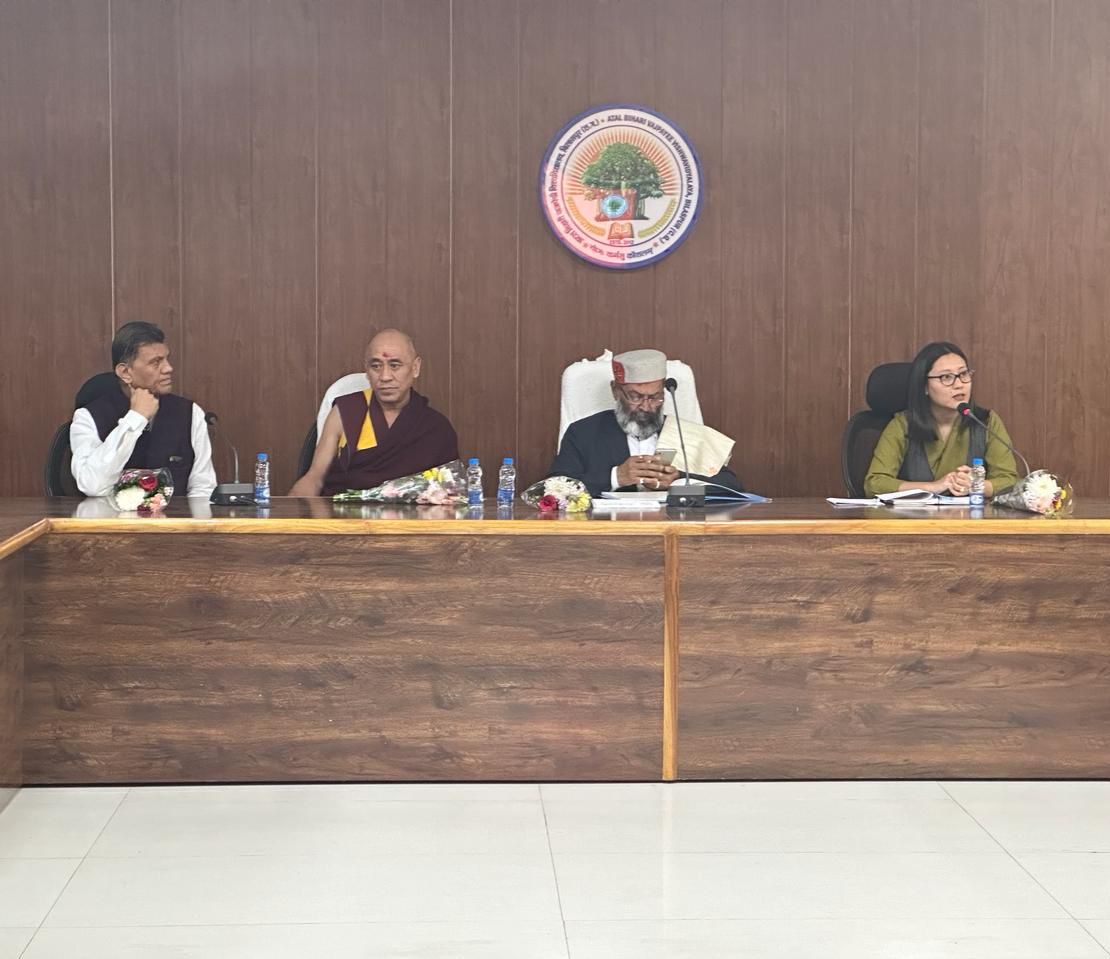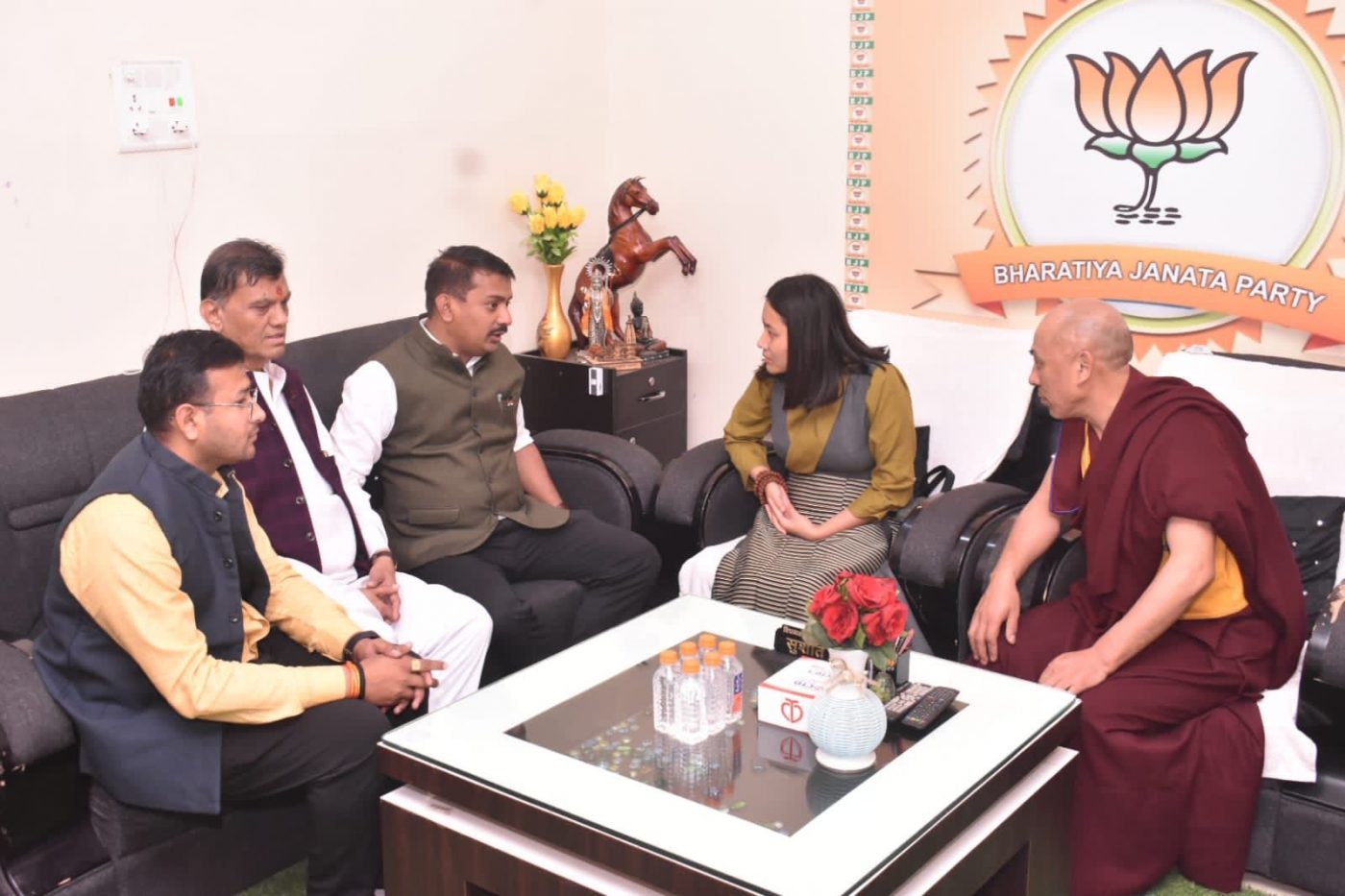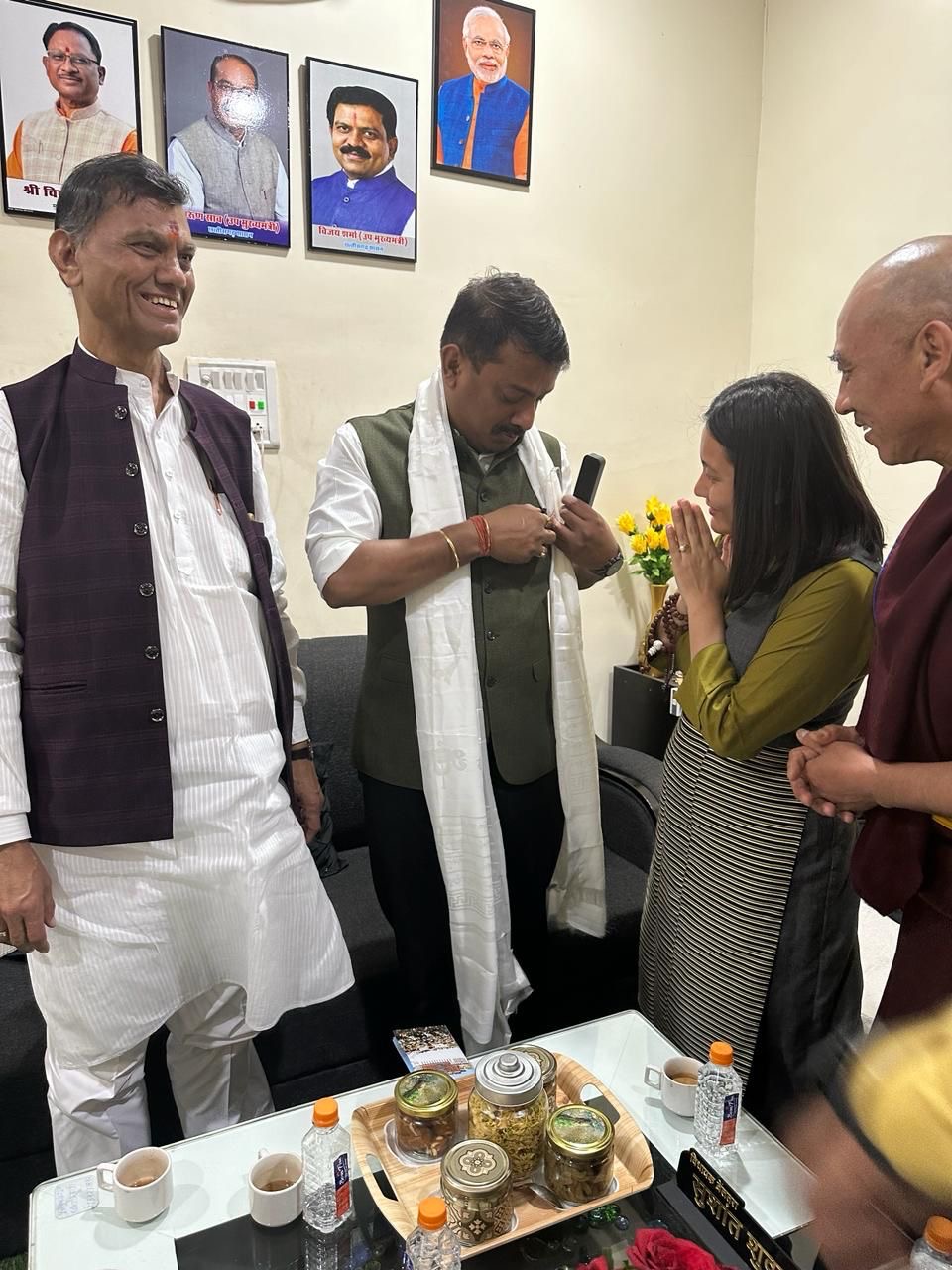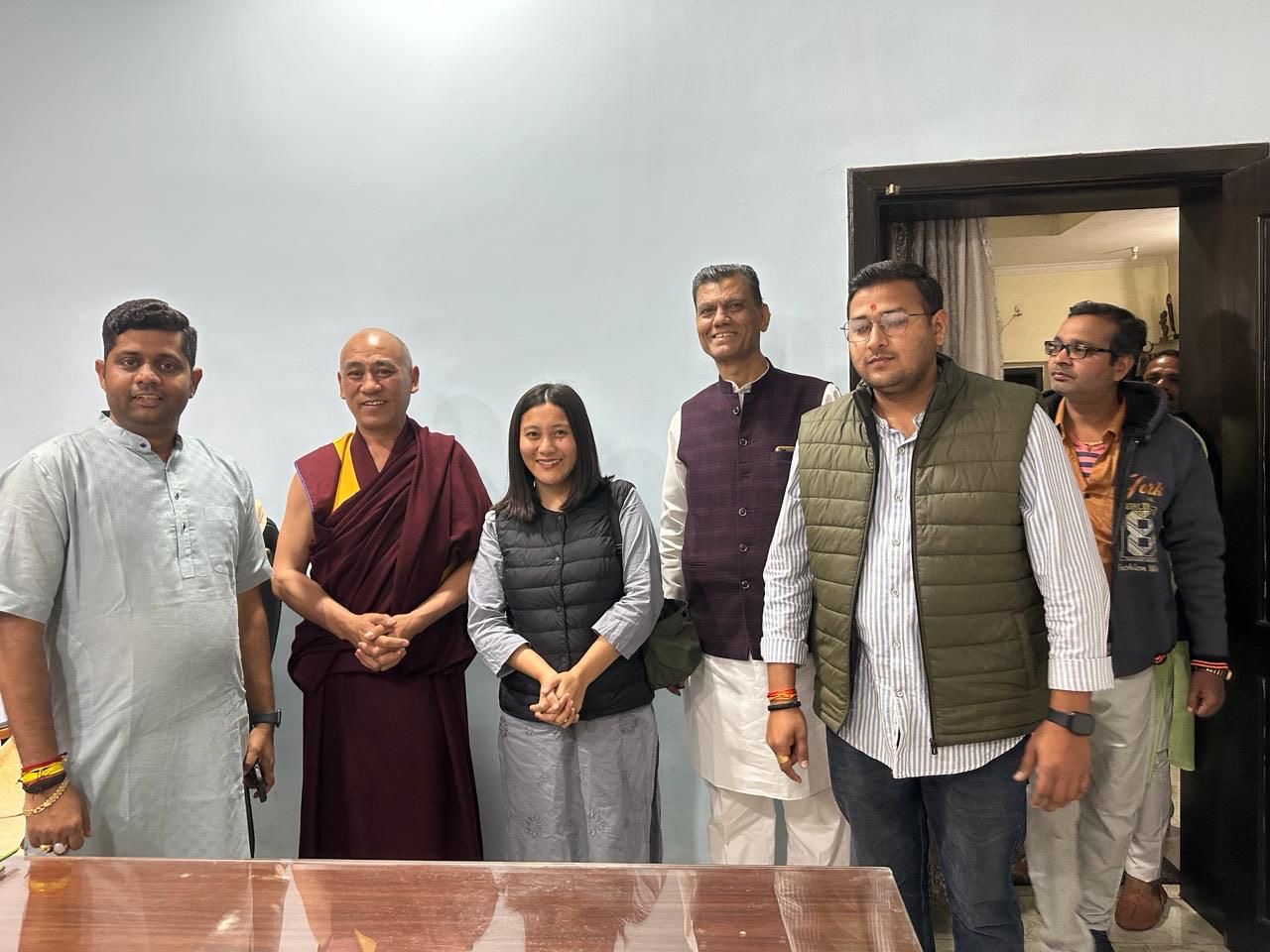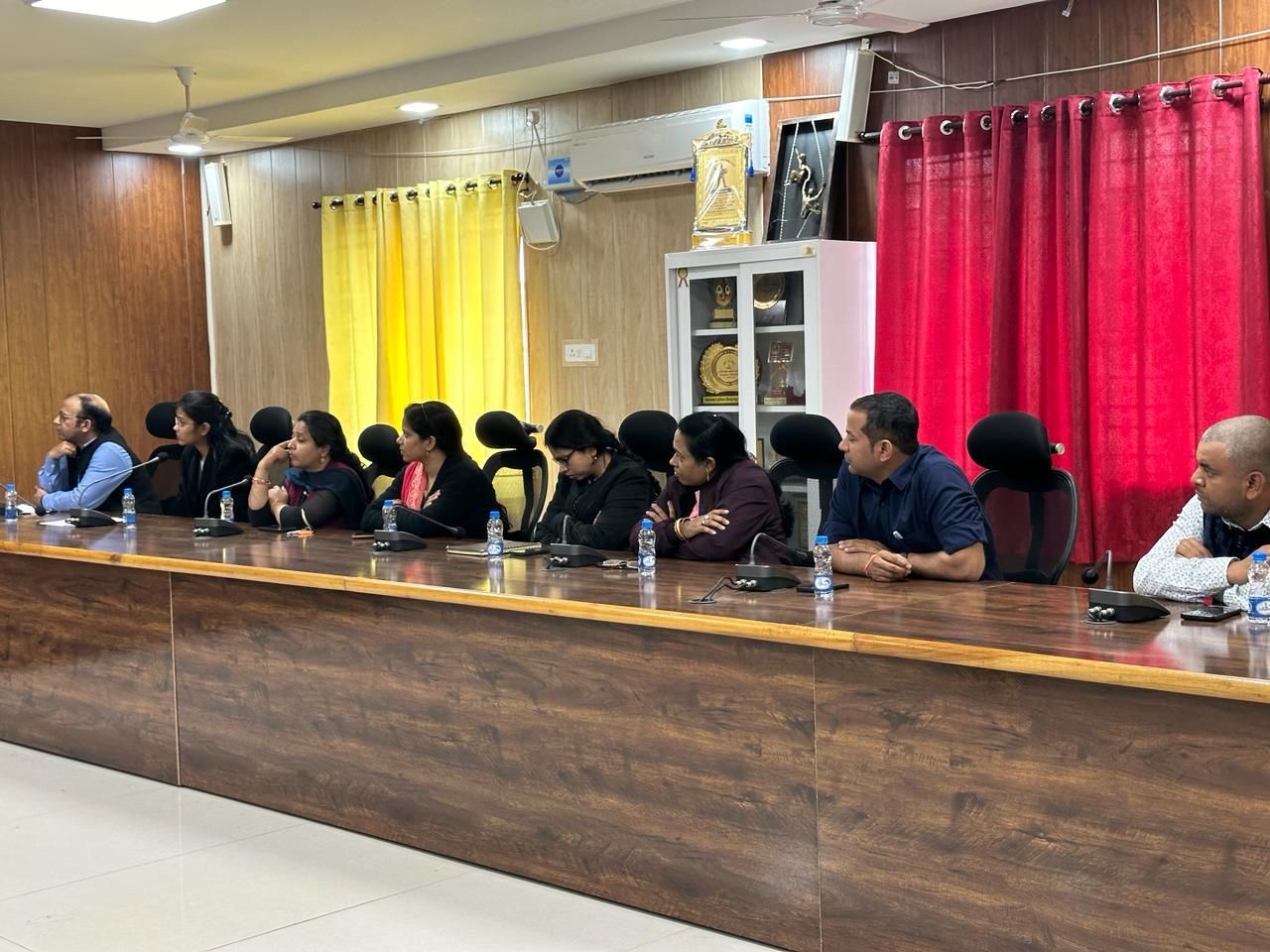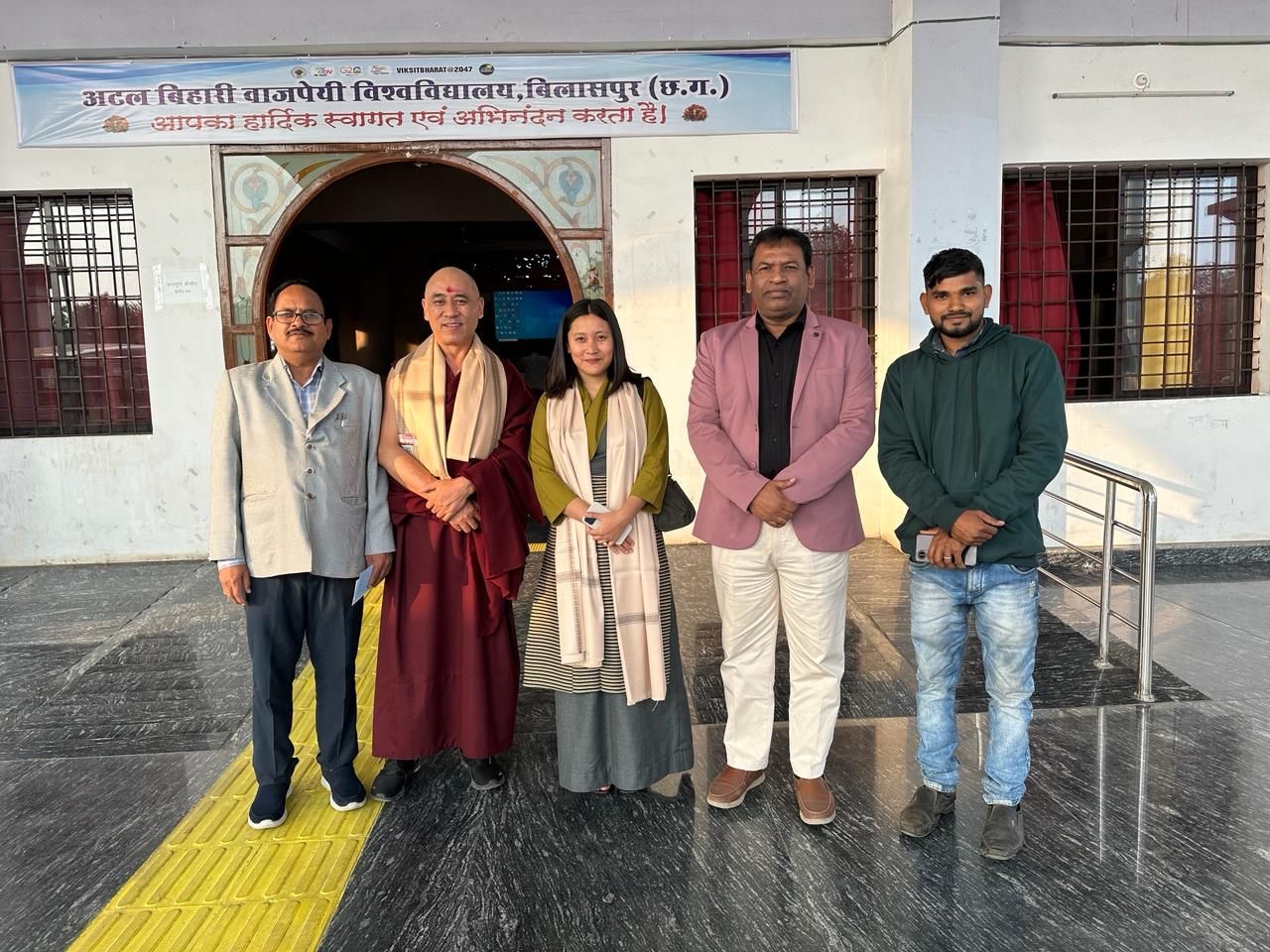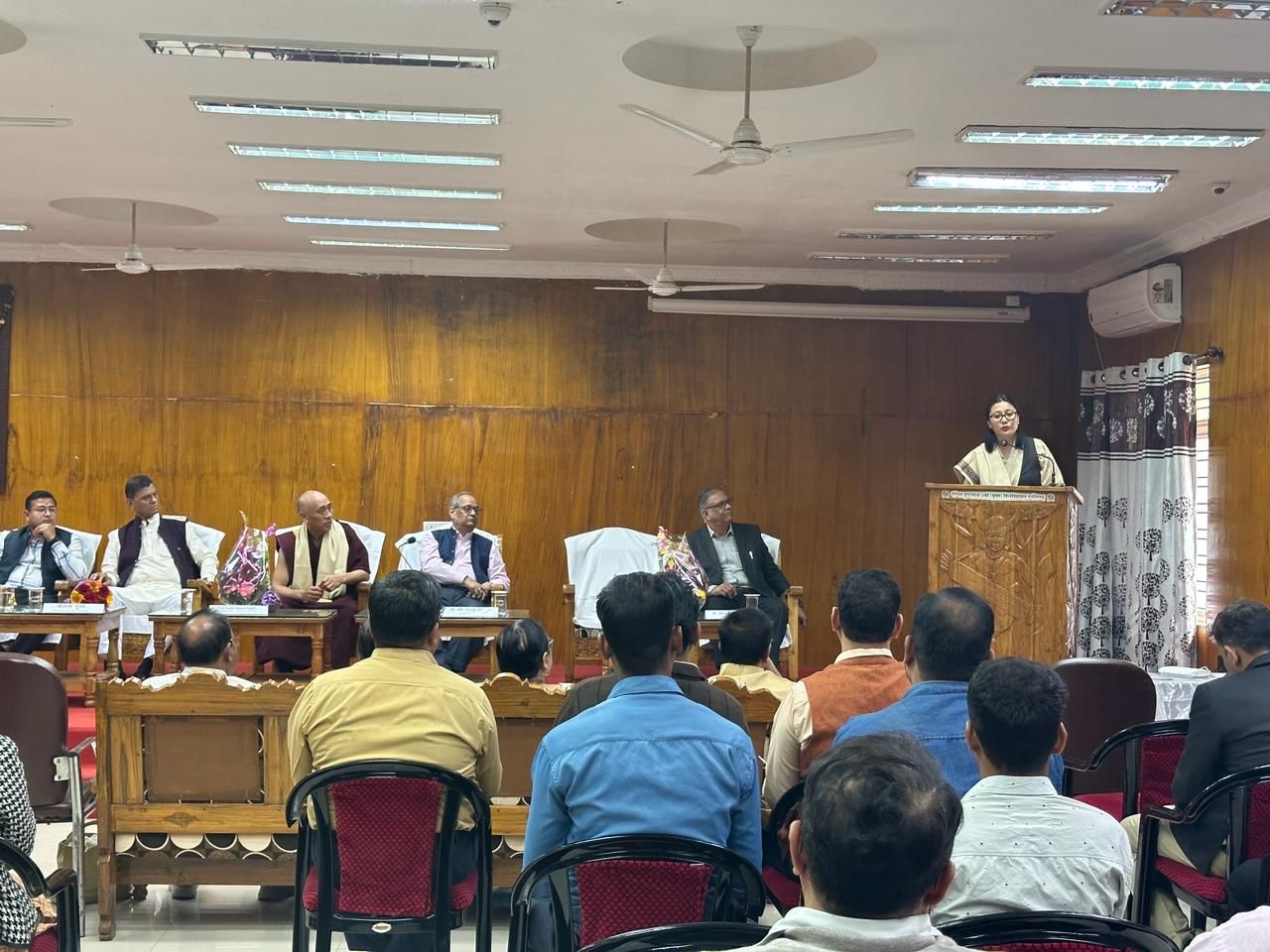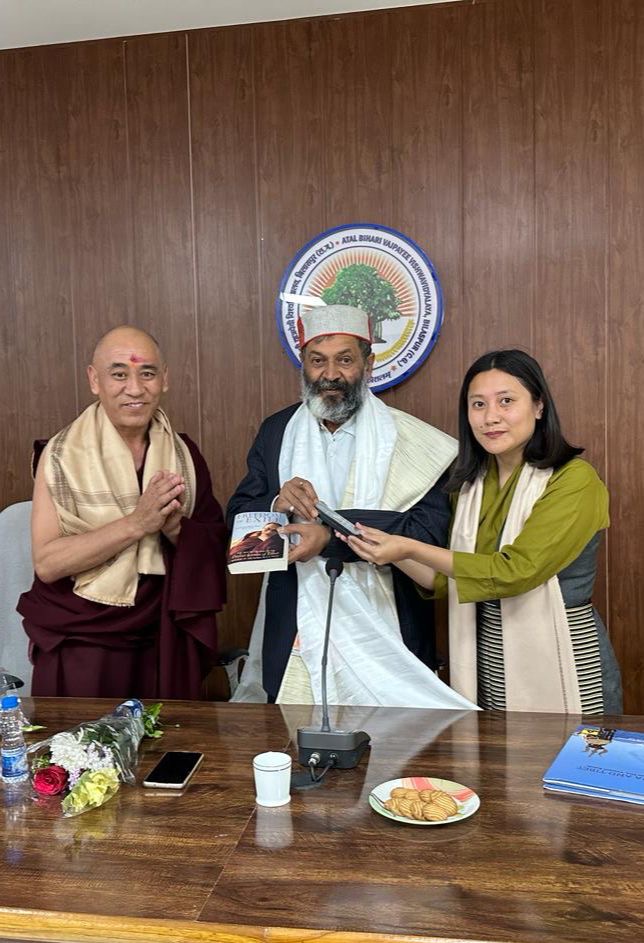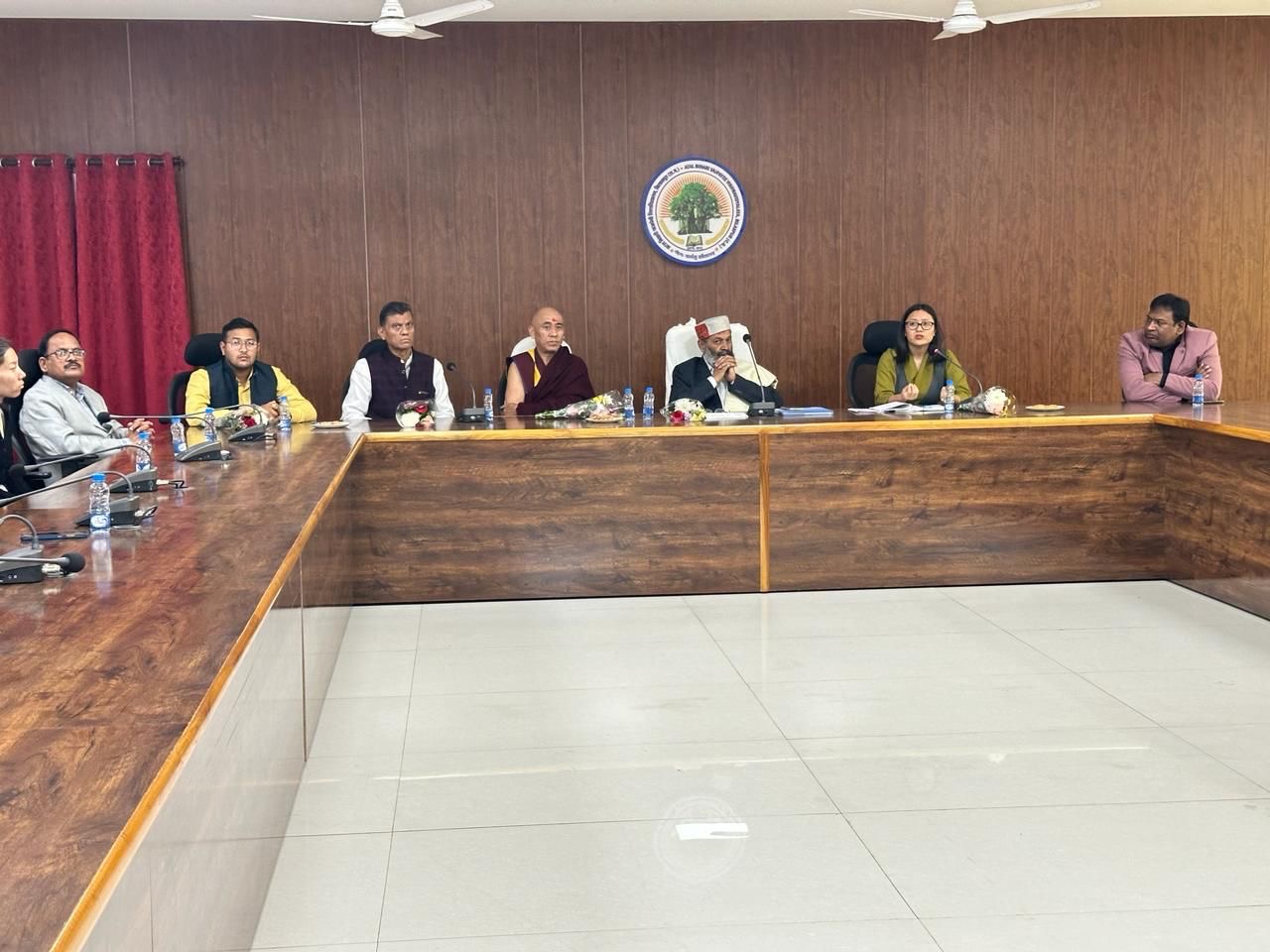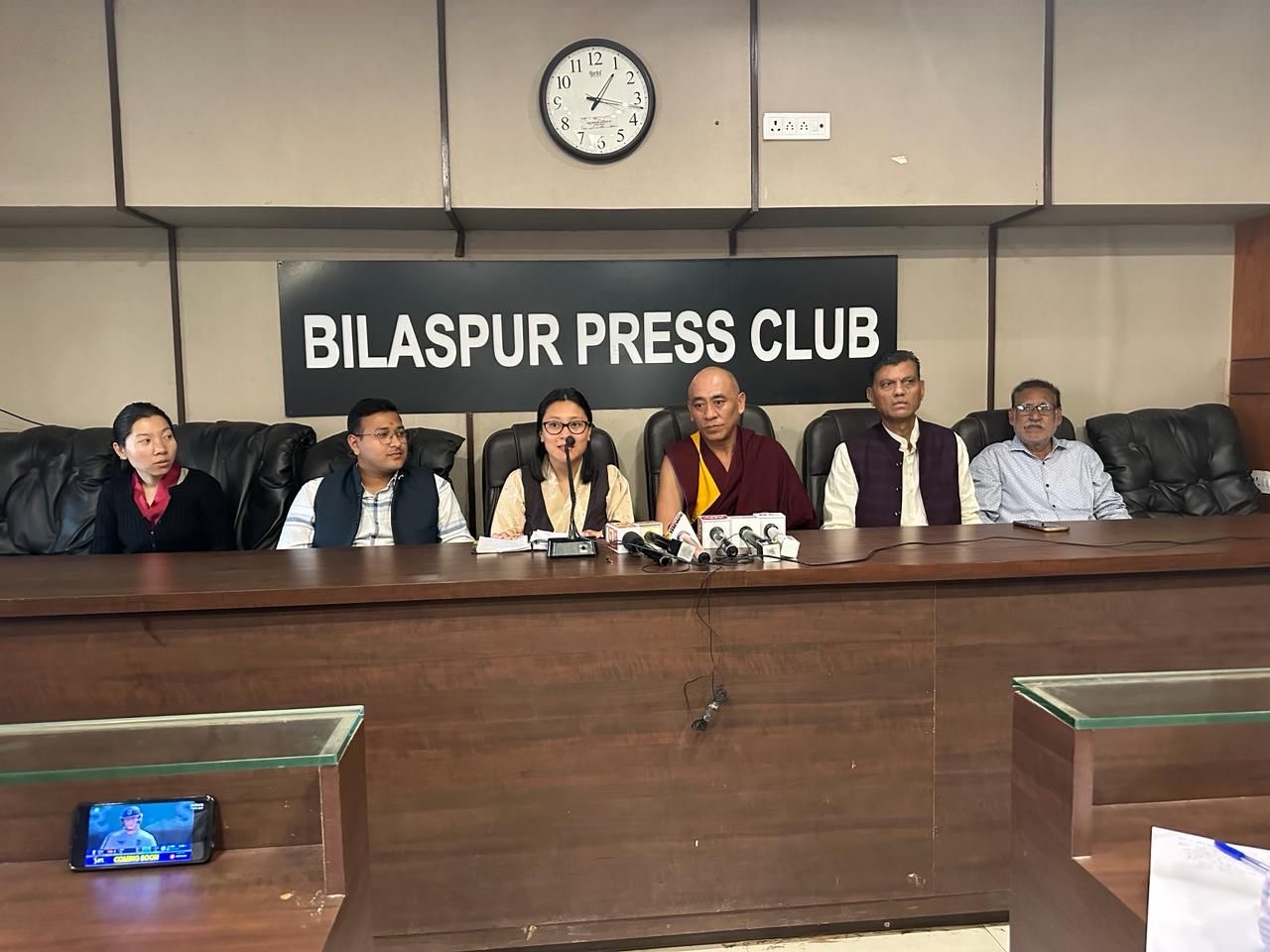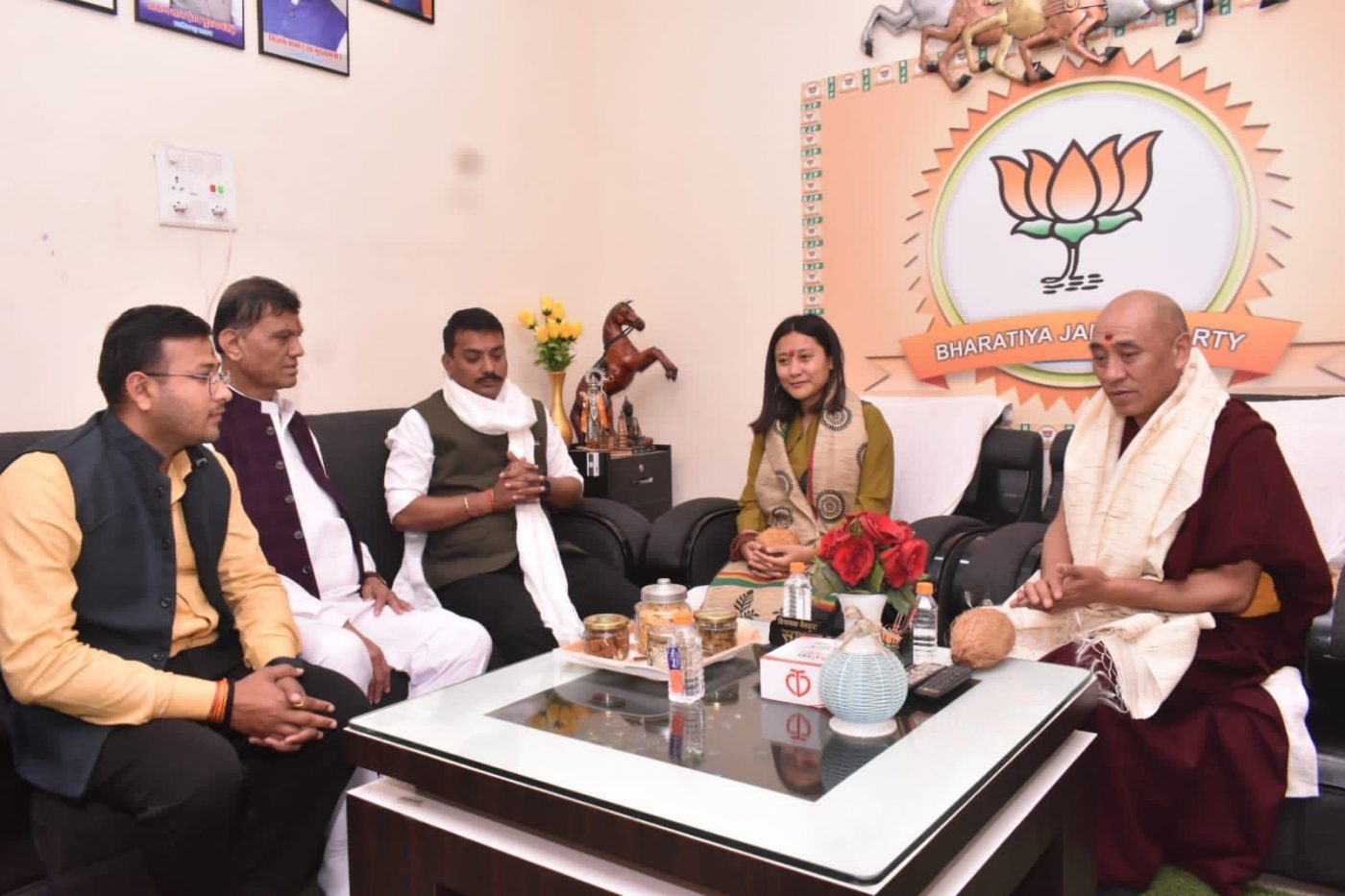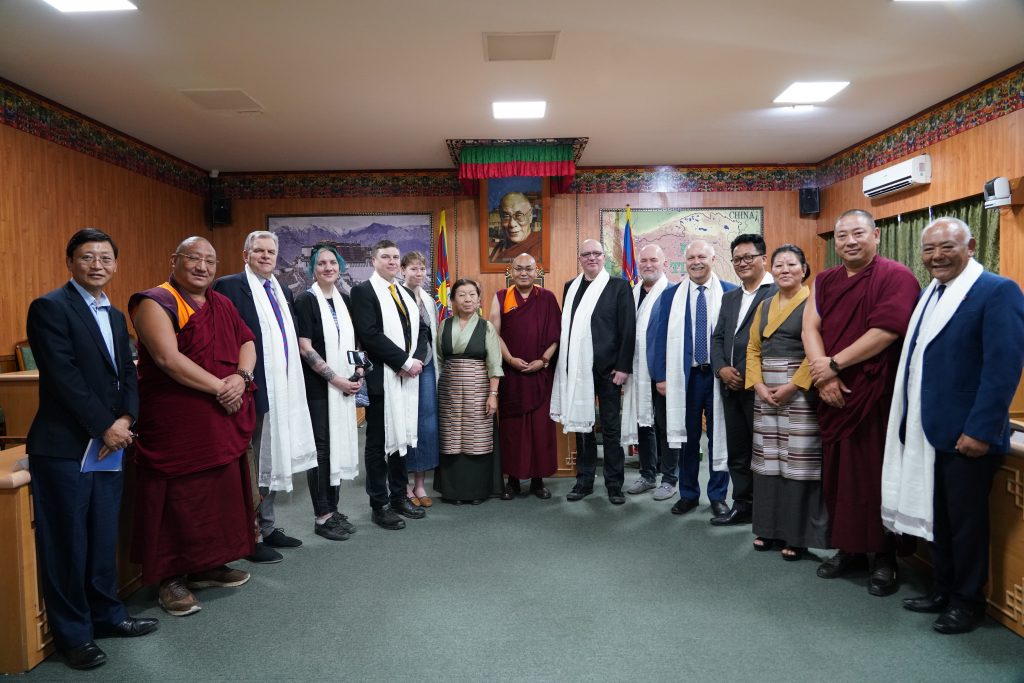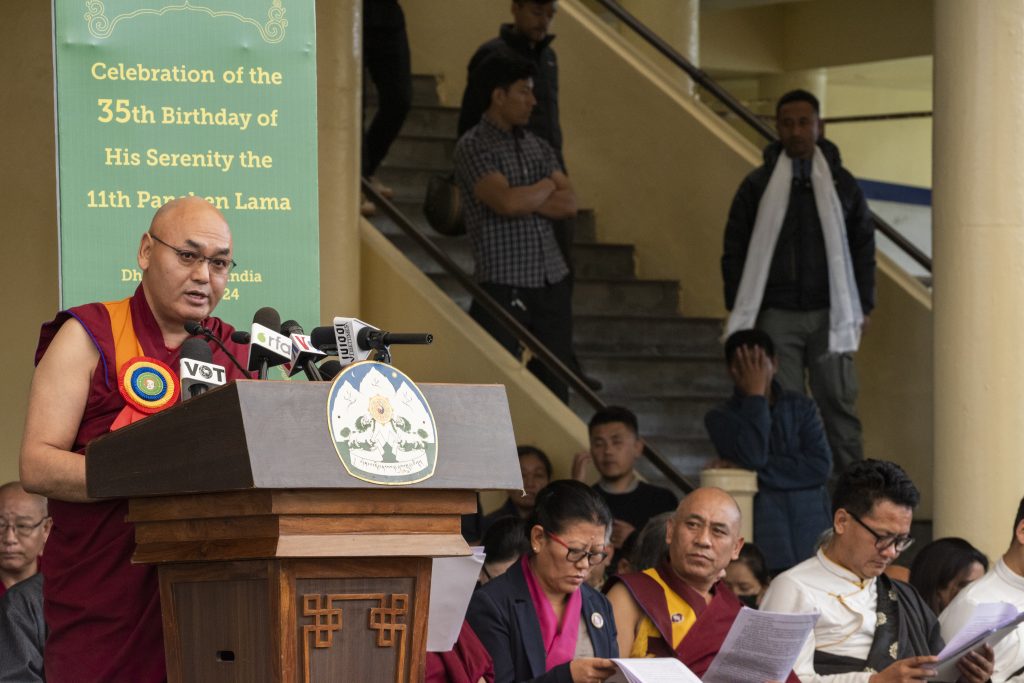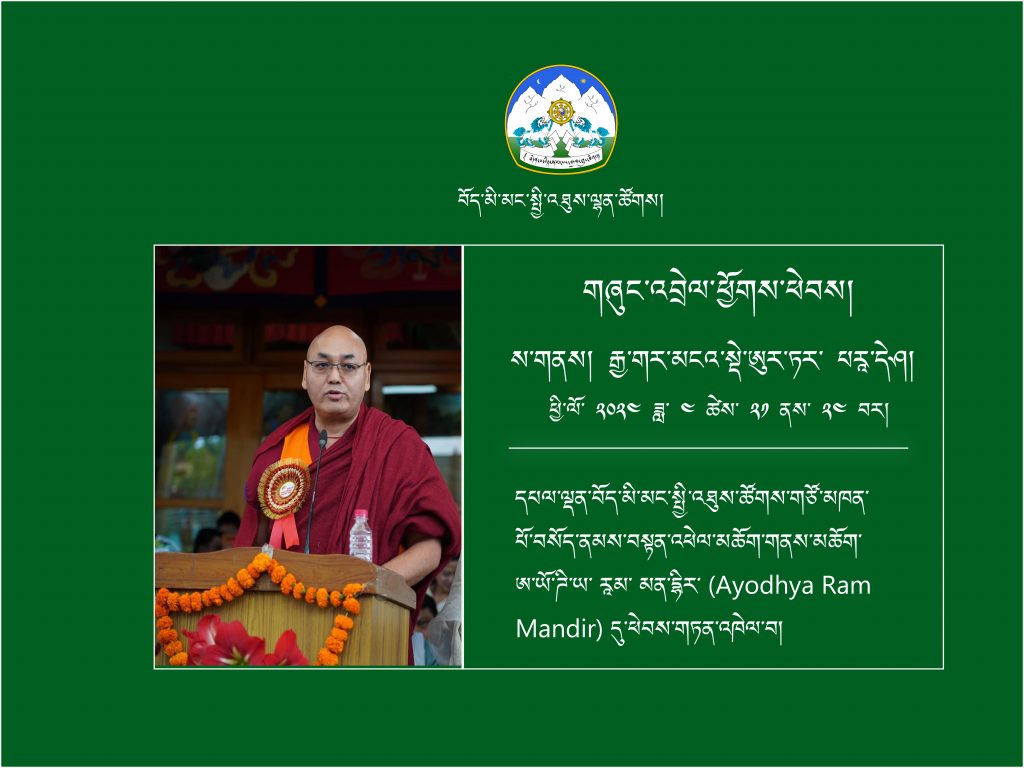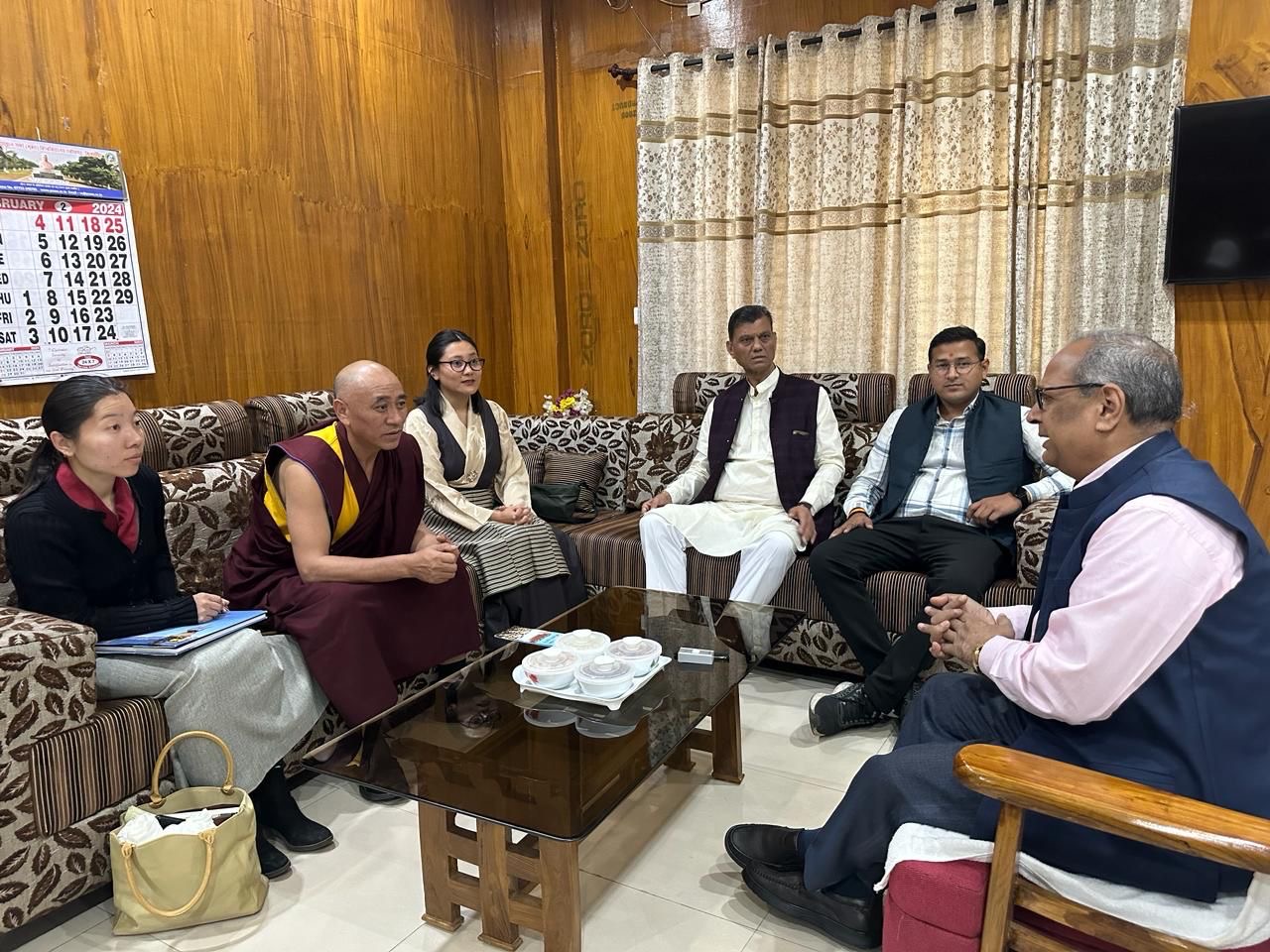
Dharamshala: As part of the Tibetan Parliament-in-Exile’s ongoing Tibet advocacy initiatives across various Indian states, Members of the Tibetan Parliament Geshe Ngawa Gangri and Tenzin Choezin visited the renowned Hindu temple of Shri Mahamaya Devi in Ratnapur, Bilaspur, Chhattisgarh. Following this visit, they engaged with Shri Sushant Shukla, a Member of the State Legislative Assembly (MLA), to introduce their advocacy campaign and urged him to look after the well-being of Tibetans residing in Mainpat.་The MLA has announced the tabling of a Private Member Bill during the upcoming session of the Vidhan Sabha, focusing on the recognition of Tibet’s historical fact of being an independent nation.
Subsequently, the delegation addressed more than 20 faculty members of Atal Bihari Vajrapai Vishva Vidyalaya, shedding light on the historical ties between India and Tibet and underscoring the significance of their appeal campaign for the Tibetan cause. In appreciation of Vice-Chancellor Professor A. D. N. Bajpai, they presented him with His Holiness the Dalai Lama’s book ‘Freedom in Exile’ along with a traditional Tibetan ceremonial scarf. Additionally, the Parliamentary appeal letters were distributed to all students and staff members.
Invited to the birthday festivities of Shri Dharamlal Kaushik, former Speaker and Former Member of the State Legislative Assembly, the delegation briefed attendees on the current situation in Tibet and the evolution of the Central Tibetan Administration. Shri Dharamlal Kaushik received a ceremonial scarf and an appeal letter during the event.
Following this, the MPs delivered a talk on the urgent situation in Tibet at Pandit Sundarlal Sharma Open University, attended by over 40 faculty members. The session included an interactive discussion on the special relationship between India and Tibet, with the MPs addressing follow-up questions. In appreciation, Vice-Chancellor Shri B. G. Singh was presented with His Holiness the Dalai Lama’s book, ‘My Land and My People,’ and a ceremonial scarf.
Finally, the delegation organized a press conference at the Bilaspur Press Club, addressing inquiries from more than 40 journalists. They emphasized the critical situation in Tibet and stressed the importance of using accurate terminology, cautioning against the term ‘Sino-Indian border,’ as its usage could significantly impact perceptions.
